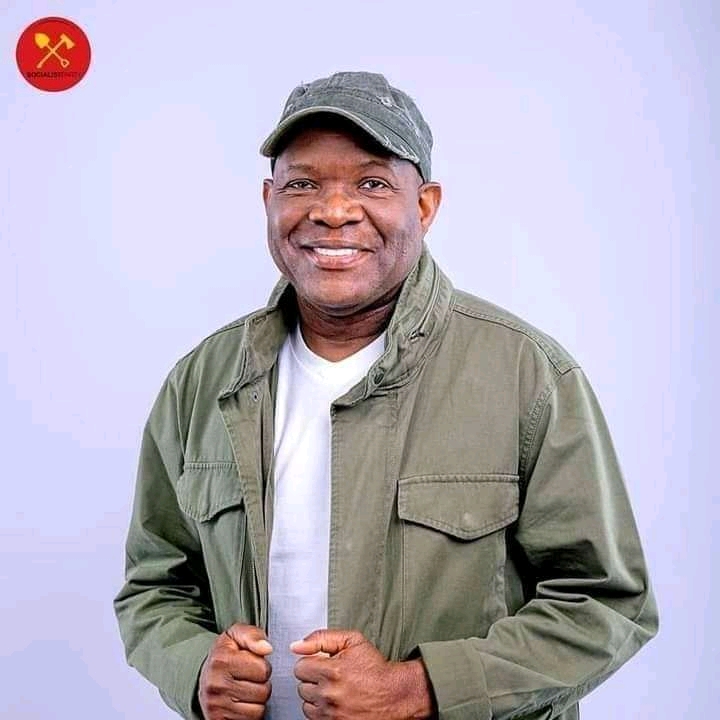INTERNAL FIGHTS ERUPT IN SOCIALIST PARTY
The Overbearing Shadow: Fred M’membe’s Leadership Dilemmas in the Socialist Party*
By Dr Mwelwa
….I would rather endure criticism for my inconsistency than contribute to the creation of a monster that could destroy Zambia…
•Fred M’membe’s moral authority to criticize Hakainde Hichilema, as they mirror the behavior we previously condemned in HH as an opposition leader.
•The very framework of the Socialist Party is built to keep power in the hands of a small, tight-knit group. The politburo, the core decision-making body, is controlled by M’membe and his family, leaving other leaders and committees with little real influence
While I hold President Fred M’membe and the Socialist Party leaders in high esteem, I believe they are not above accountability to the party membership. I cannot remain silent when democratic values are compromised. The nocturnal dismissal of Antonio Mwanza and Alick Tembo raises concerns about desperation ahead of the National Congress. These actions undermine Fred M’membe’s moral authority to criticize Hakainde Hichilema, as they mirror the behavior we previously condemned in HH as an opposition leader.
In the rough and tumble world of Zambian politics, the Socialist Party is steering through uncertain waters led by Dr. Fred M’membe. His move from the chaotic newsroom of The Post to his current political role speaks volumes about his resilience, intellect, and dedication to social causes. However, despite these admirable qualities, the Socialist Party struggles to gain political traction. Recent events shed light on some deep-seated issues, showing how M’membe’s leadership style might be more of a hindrance than a help.
Tonight, news emerged that Antonio Mwanza and Alick Tembo were abruptly removed from their roles within the party. Such sudden firings raise eyebrows and highlight flaws in the party’s internal processes. These dismissals were not part of a democratic process or a transparent strategy shift. Instead, they were decided by M’membe and his daughter, further concentrating power within their inner circle.
Critics have long pointed out issues with M’membe’s leadership approach. While he is respected for his intellectual skills and past journalistic work, his tight grip on the party stifles creativity, sidelines potential new leaders, and creates an environment where disagreement is met with punishment. It’s ironic—a party that advocates for social equality and political fairness internally replicates the same power dynamics it wants to change nationally.
The removal of Mwanza and Tembo reflects broader problems within the party. These men are not just faceless operatives; they are experienced figures who could bring fresh ideas and strategies. Their sudden departure sends a clear message to others: innovation and critical thinking are not valued here. M’membe’s actions suggest a leadership that draws strength not from collective wisdom, but from a centralized power structure.
This autocratic style doesn’t stop at organizational purges. The very framework of the Socialist Party is built to keep power in the hands of a small, tight-knit group. The politburo, the core decision-making body, is controlled by M’membe and his family, leaving other leaders and committees with little real influence. This top-down approach creates a bottleneck that hinders broad participation and stifles the party’s growth and adaptability.
The fallout from this centralized power scheme is significant. Provincial committees and grassroots members, who should be the movement’s backbone, are reduced to mere functionaries, mobilized for rallies but stripped of real influence. This disenfranchisement demoralizes party ranks and undermines the principles the Socialist Party claims to uphold.
Even the party’s constitution, theoretically a living document shaped by its members, is trapped by procedural controls. The upcoming National Congress, an opportunity for democratic engagement and potential reform, is expected to be a formality. Drafts of proposed amendments, if they exist, are kept secret, with no meaningful input from the party’s wider membership. This lack of transparency ensures that the congress will likely rubber-stamp pre-decided changes rather than reflect true democratic will.
M’membe’s handling of the party highlights the dangers of a leadership model that values control over collaboration. His role, which should ideally evolve from centralized command to facilitating collective action, remains stuck in autocracy. The dismissal of Mwanza and Tembo is a symptom of a deeper problem, where the party’s potential is hindered by an unwillingness to embrace participatory governance.
A true leader’s legacy is built not just on personal victories but on the ability to mentor, delegate, and inspire a collective vision. For the Socialist Party to succeed, it must break free from the centralized constraints holding it back. Dr. Fred M’membe’s brilliance is clear, but his ultimate success will depend on his ability to transition from a solitary leader to one who shares power and fosters collaboration.
Without this crucial change, even the most impressive individual achievements can’t overcome the systemic flaws keeping the Socialist Party from political success. The firing of Antonio Mwanza and Alick Tembo is a stark reminder that in politics, true power comes not from centralized authority but from collective effort and inclusive leadership.
INTERNAL FIGHTS ERUPT IN SOCIALIST PARTY
